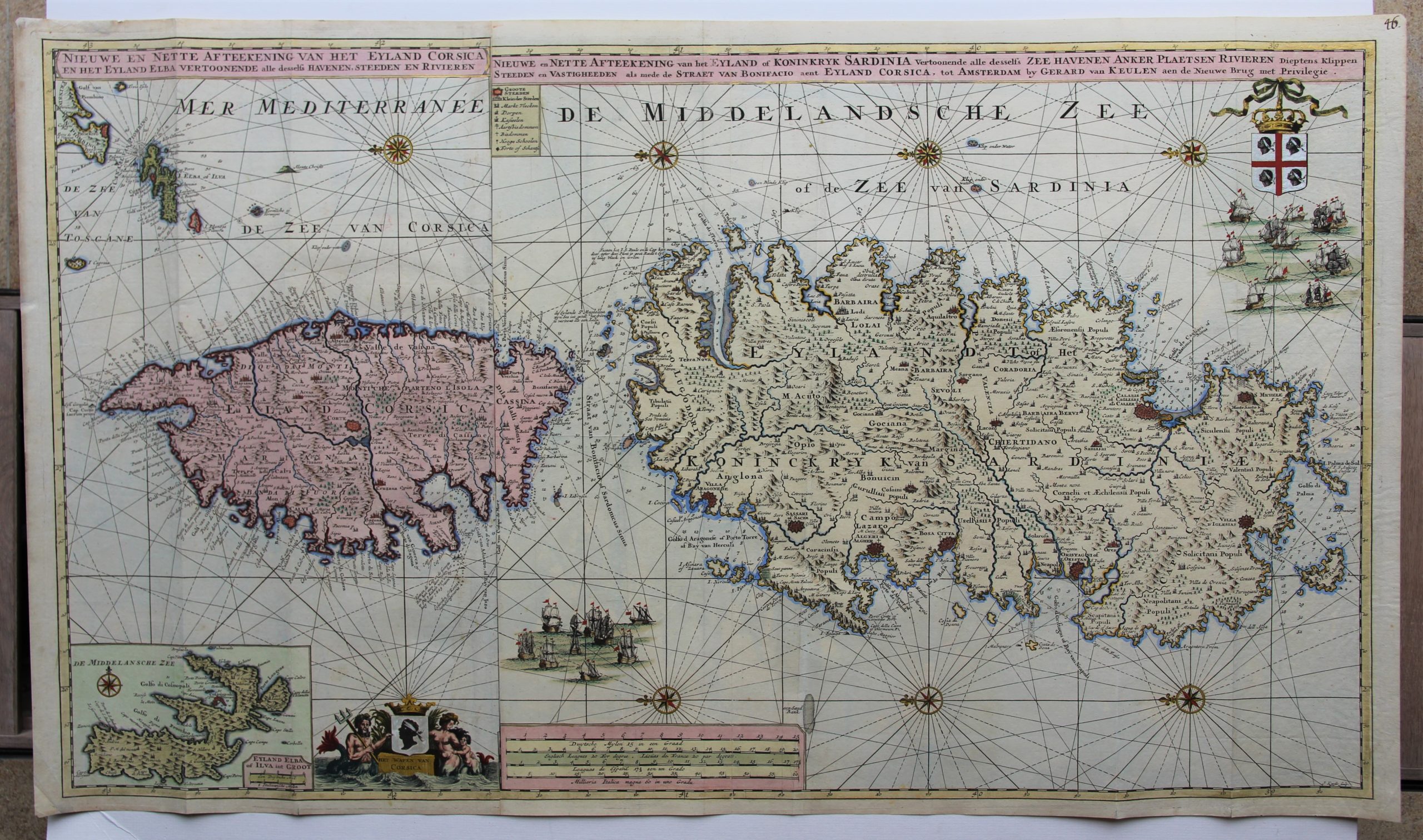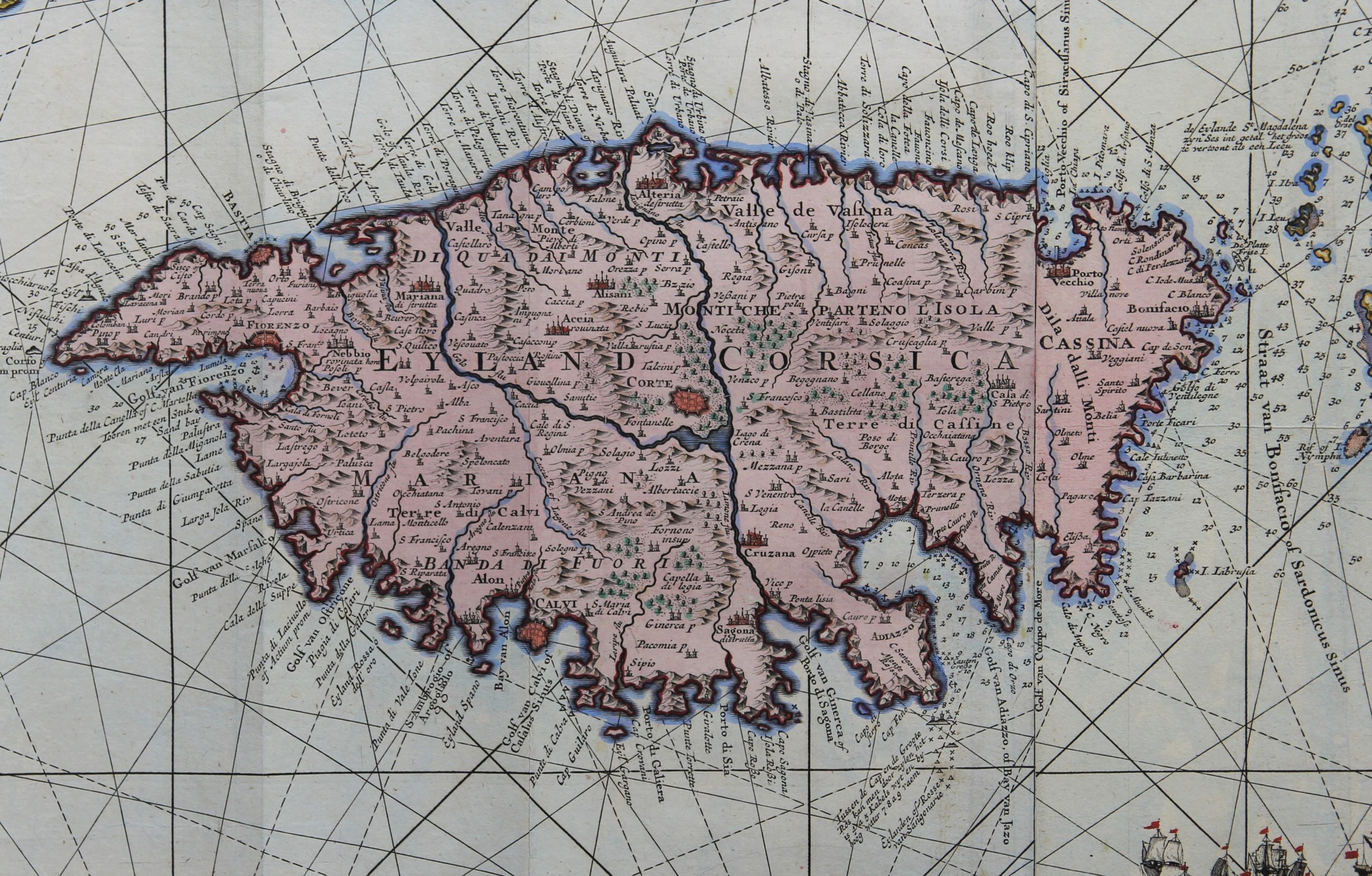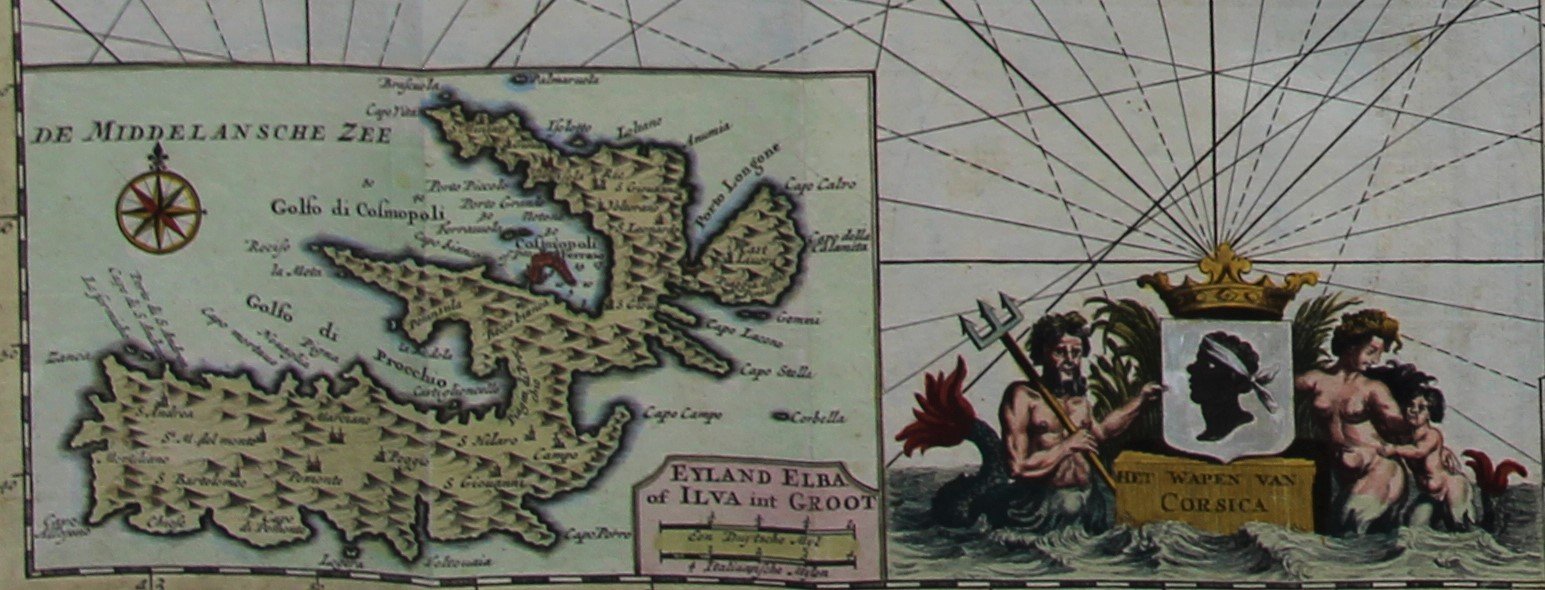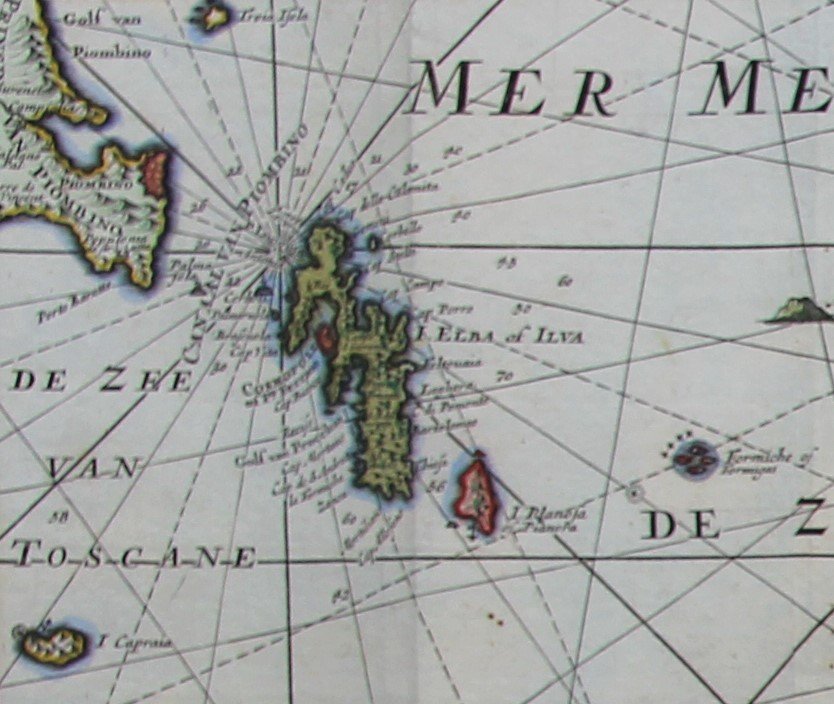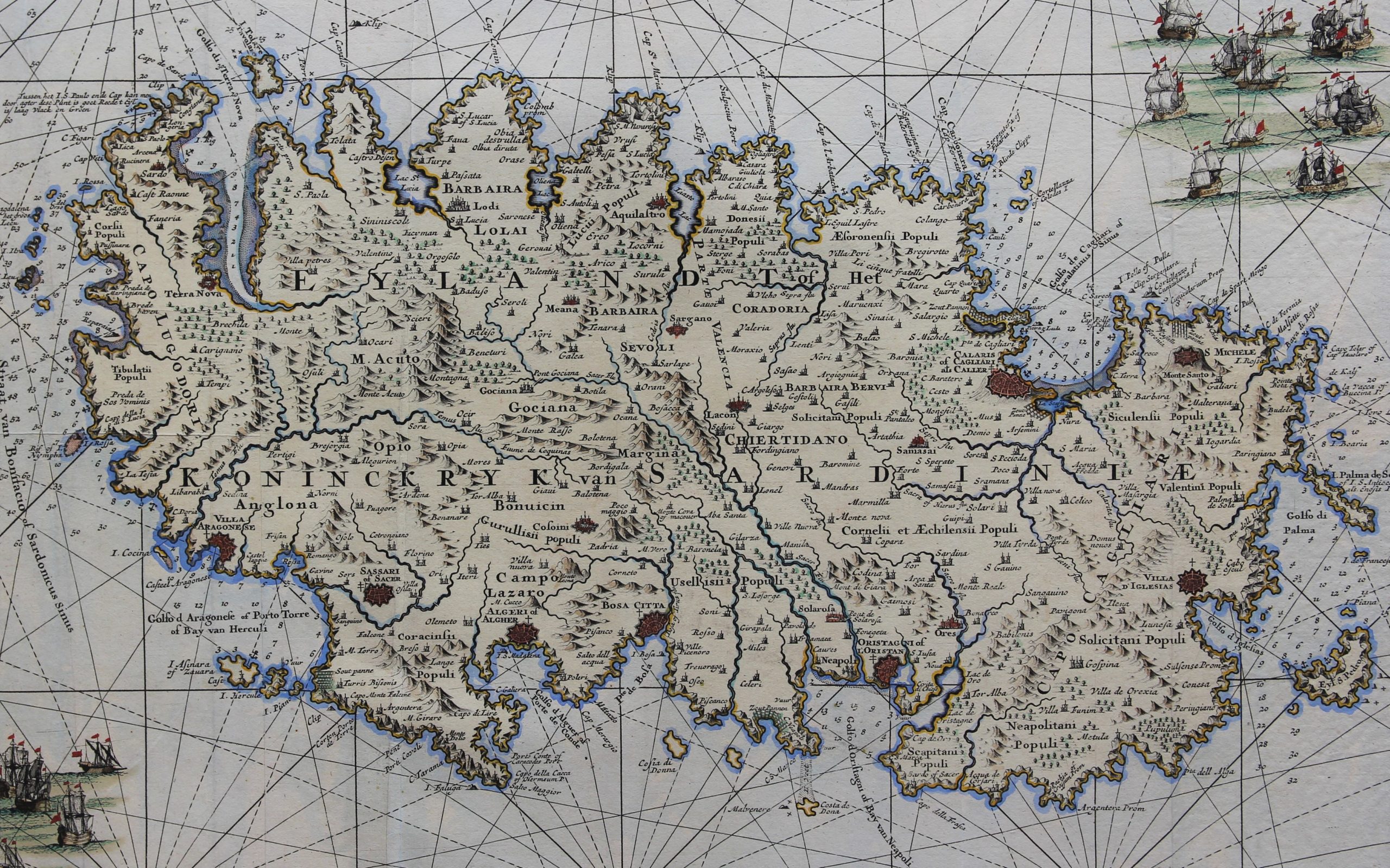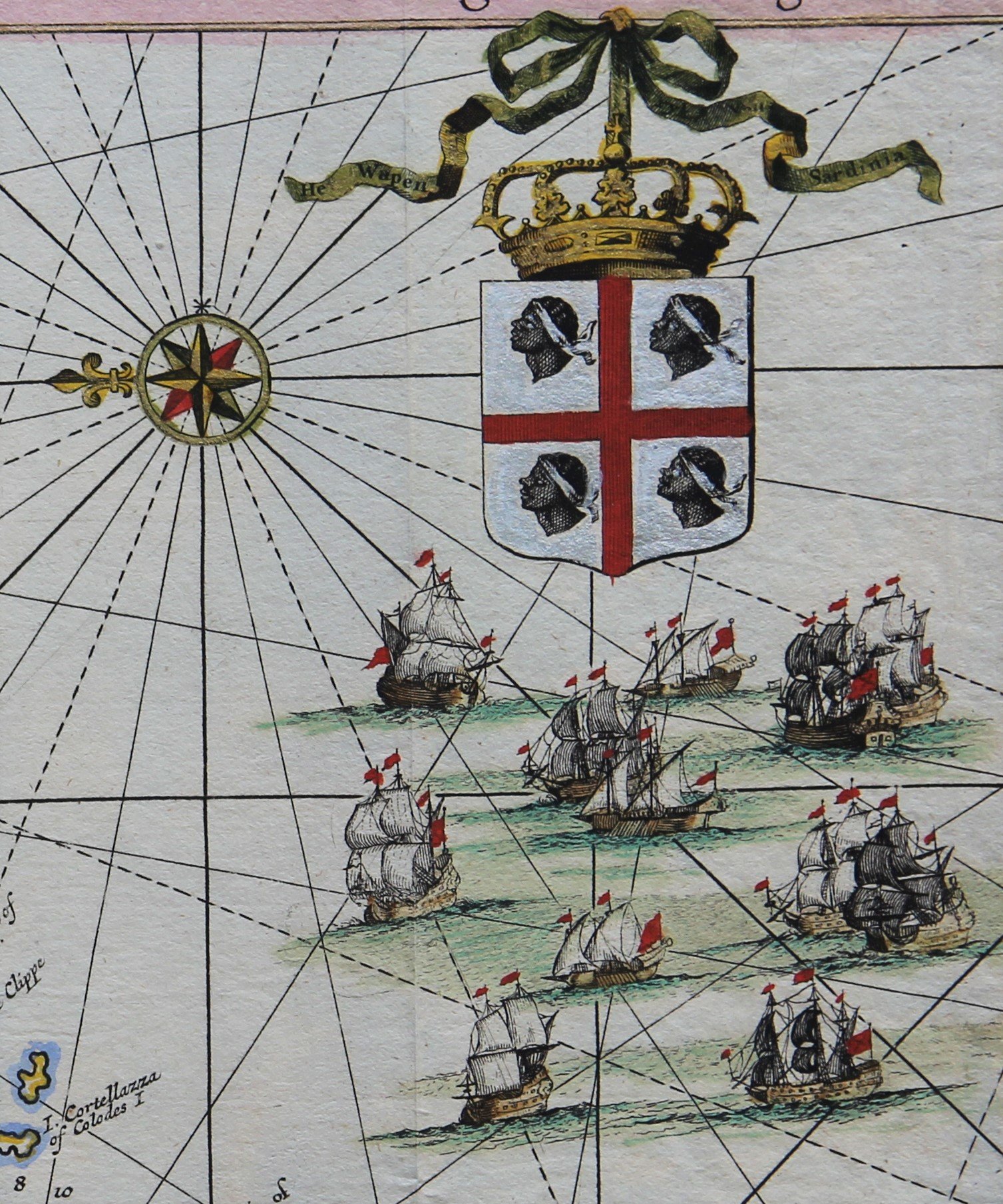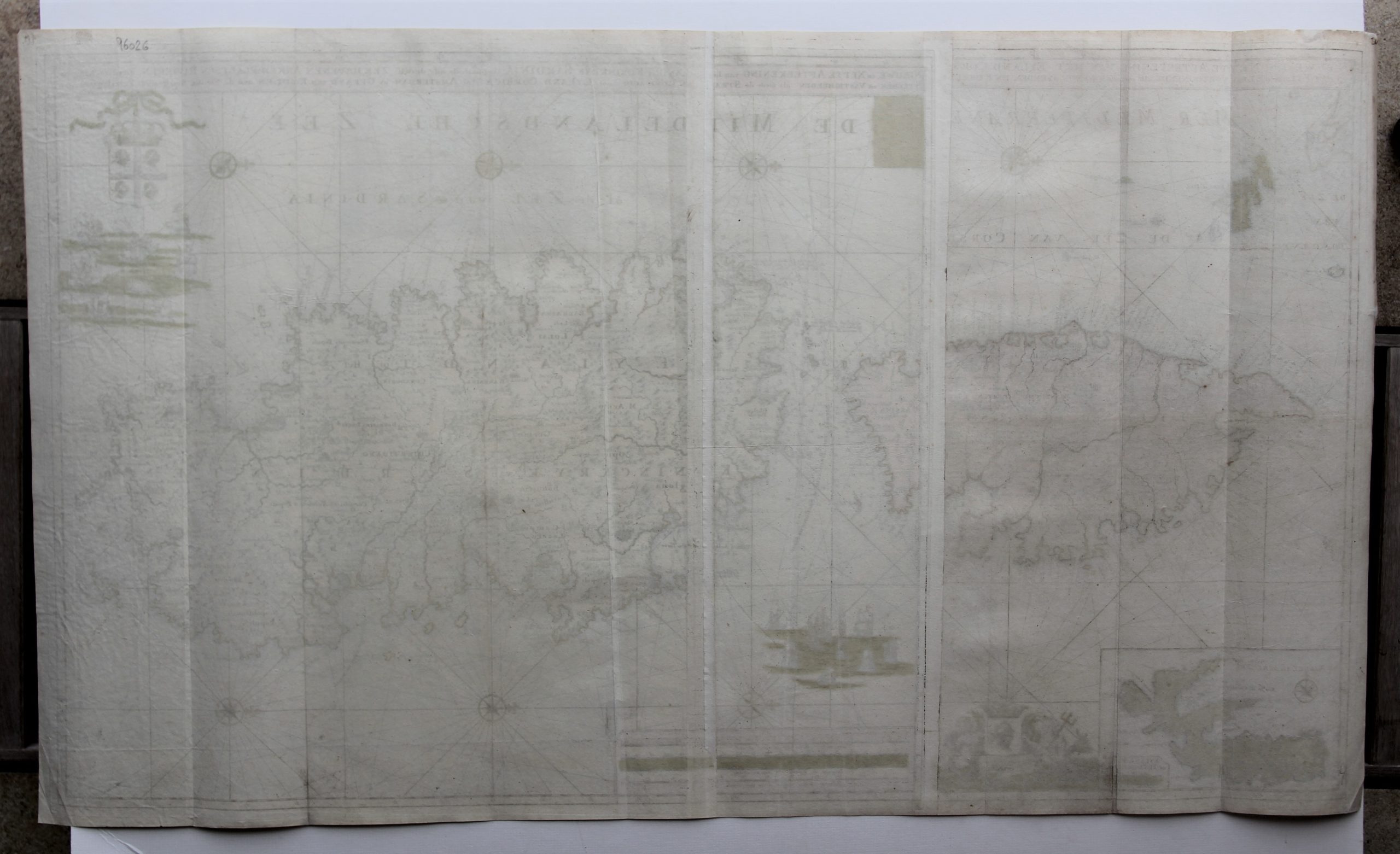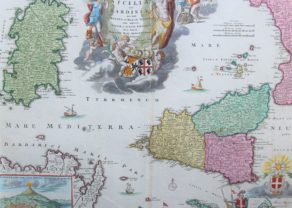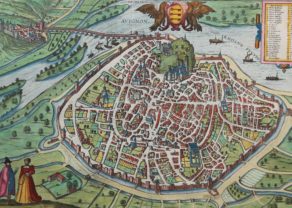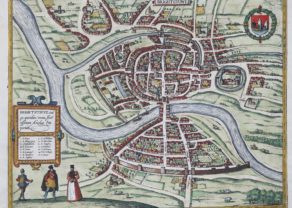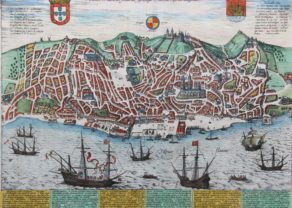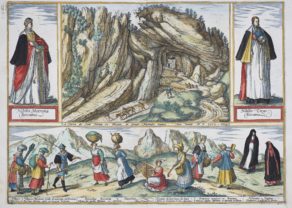Corsica and Sardinia
Corsica and Sardinia as you have never seen them: Superb, rare and enhanced with gold and silver
Detail
Date of this map: 1734 (recorded)
Dimensions (not including margins): 53,3 x 91 cm
Dimensions (including margins): 50 x 87,5 cm
Condition: Very good, considered the chart’s age and size. Sharp engraving on two sheets.
Condition rating: A+
Verso: blank
Map reference: Keu 95, map 312
From: De Zee-fakkel, part III, Keu 95
In stock
Gold and silver enhanced
An extremely detailed, large and rare sea chart of Corsica, Sardinia and Elba, with many sailing ships, compass roses, decorative cartouches, coat of arms of both islands, etc.
Original title: Nieuwe en Nette Afteekening van het Eyland Corsica en het Eyland Elba vertoonende alle desselfs Havenen, Steeden en Rivieren. Nieuwe en Nette Afteekening van het Eyland of Koninkryk Sardinia vertoonende alle desselfs Zee Havenen Anker Plaetsen Rivier …
Corsica, a troubled history
Corisca was part of the Republic of Genoa from the 13th century until the 18th century. In 1729 the Corsican Revolution for independence from Genoa began, first led by Luiggi Giafferi and Giacinto Paoli, and later by Paoli’s son, Pasquale Paoli. After 26 years of struggle against Genoa (plus an ephemeral attempt to proclaim in 1736 an independent Kingdom of Corsica under the German adventurer Theodor von Neuhoff), the independent Corsican Republic was proclaimed in 1755 under the leadership of Pasquale Paoli and remained sovereign until 1769, when the island was conquered by France. The first Corsican Constitution was written in Italian (the language of culture in Corsica until the middle of the 19th century) by Paoli. Despite the conquest, Corsica was not incorporated into the French state until 1789.
Following the outbreak of the French Revolution in 1789, Pasquale Paoli was able to return to Corsica from exile in Britain. In 1794, he invited British forces under Lord Hood to intervene to free Corsica from French rule. Anglo-Corsican forces drove the French from the island and established an Anglo-Corsican Kingdom. Following Spain’s entry into the war, the British decided to withdraw from Corsica in 1796. Corsica returned to French rule.
Napoleon Bonaparte was born in Ajaccio on 15 August 1769. He left Corsica for mainland France in 1778. His entire life he would speak French with a heavy Corsican accent.
From 14 May 1991, the island forms the Collectivité territoriale de Corse and has a special status within the French Republic, which gives it more autonomy than the mainland regions.
